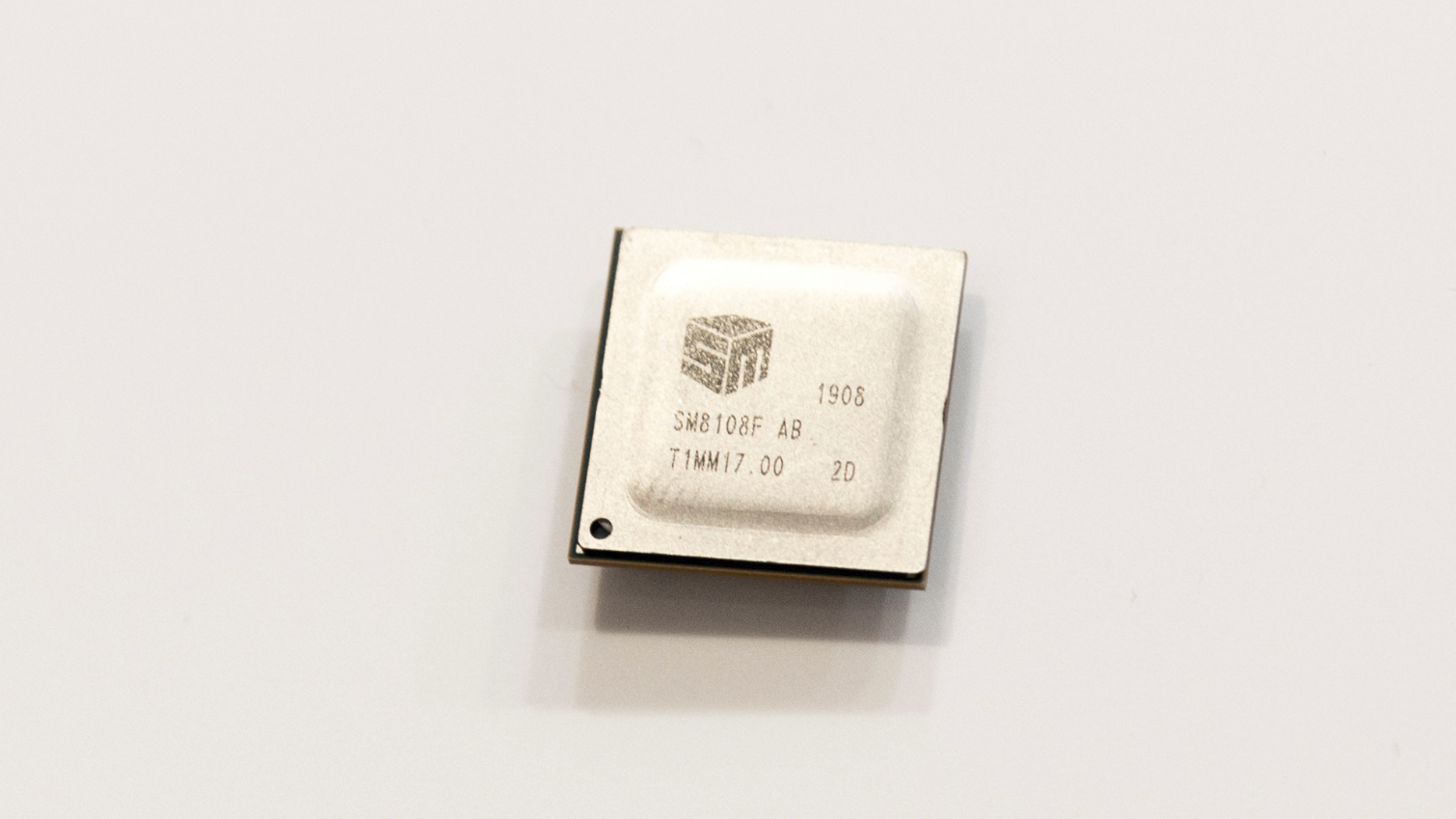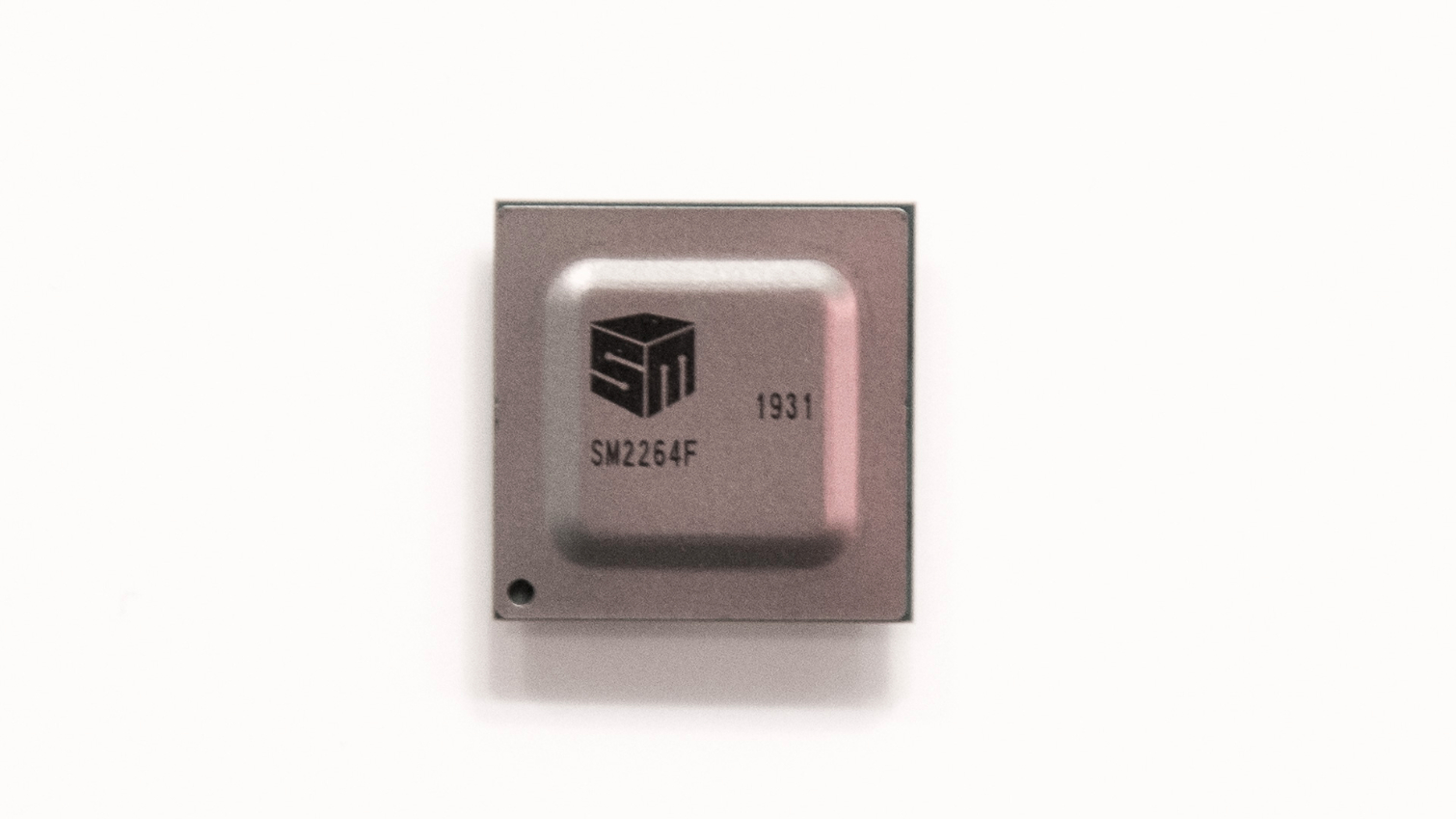Silicon Motion Displays its First PCIe 4.0 SSD Controllers
Now that AMD's Ryzen 3000 series chips have brought support for PCIe 4.0 to the desktop, the race is on for new, faster SSDs. Silicon Motion (SMI) had quite the booth at the Flash Memory Summit this year. With strategic partnerships with many popular SSD vendors, the company has saturated the market with some of the fastest SSD controllers over the past few years, and the company had multiple turnkey solutions, as well as built-to-order designs for companies like Shannon Systems, on display.

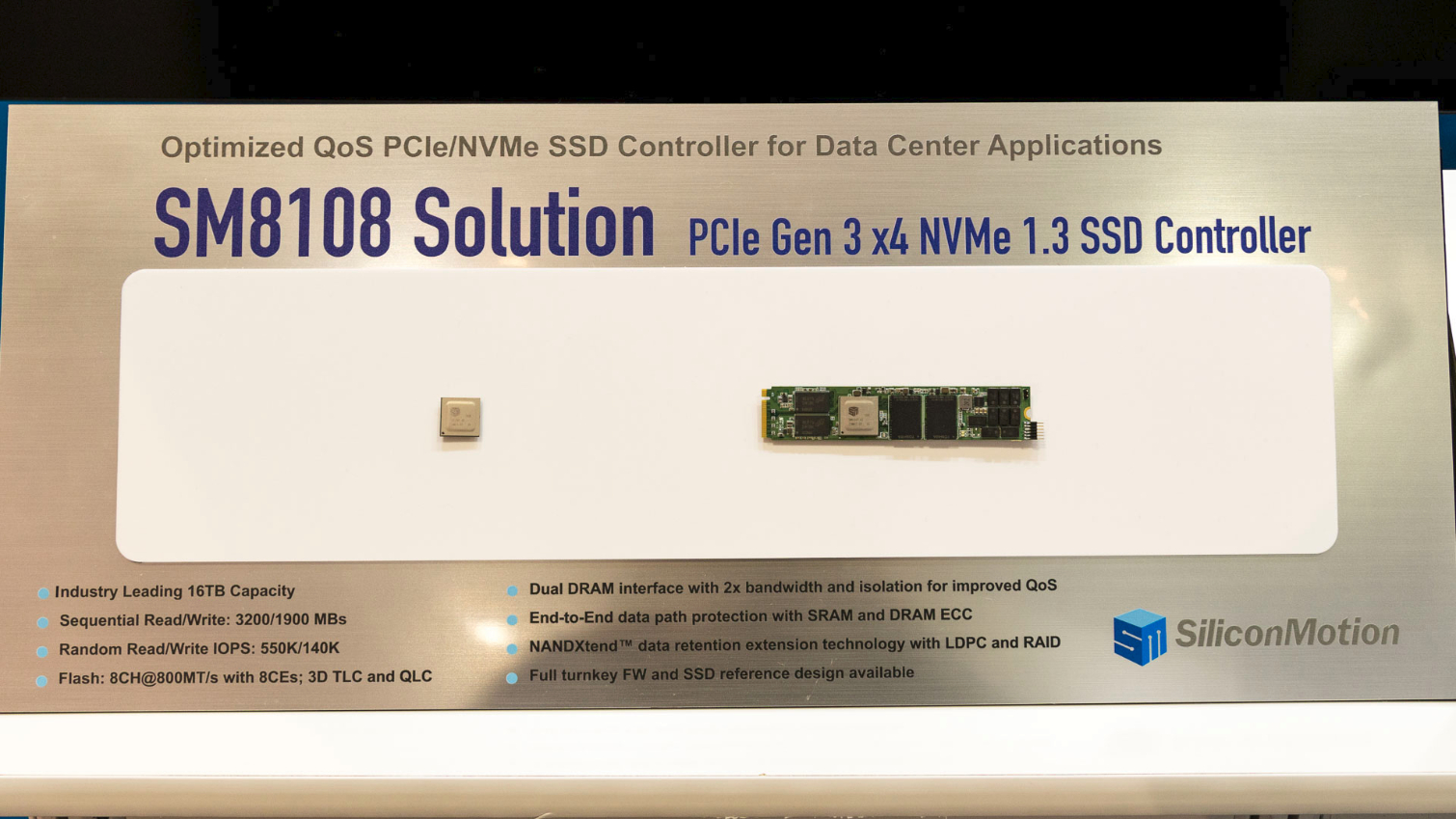
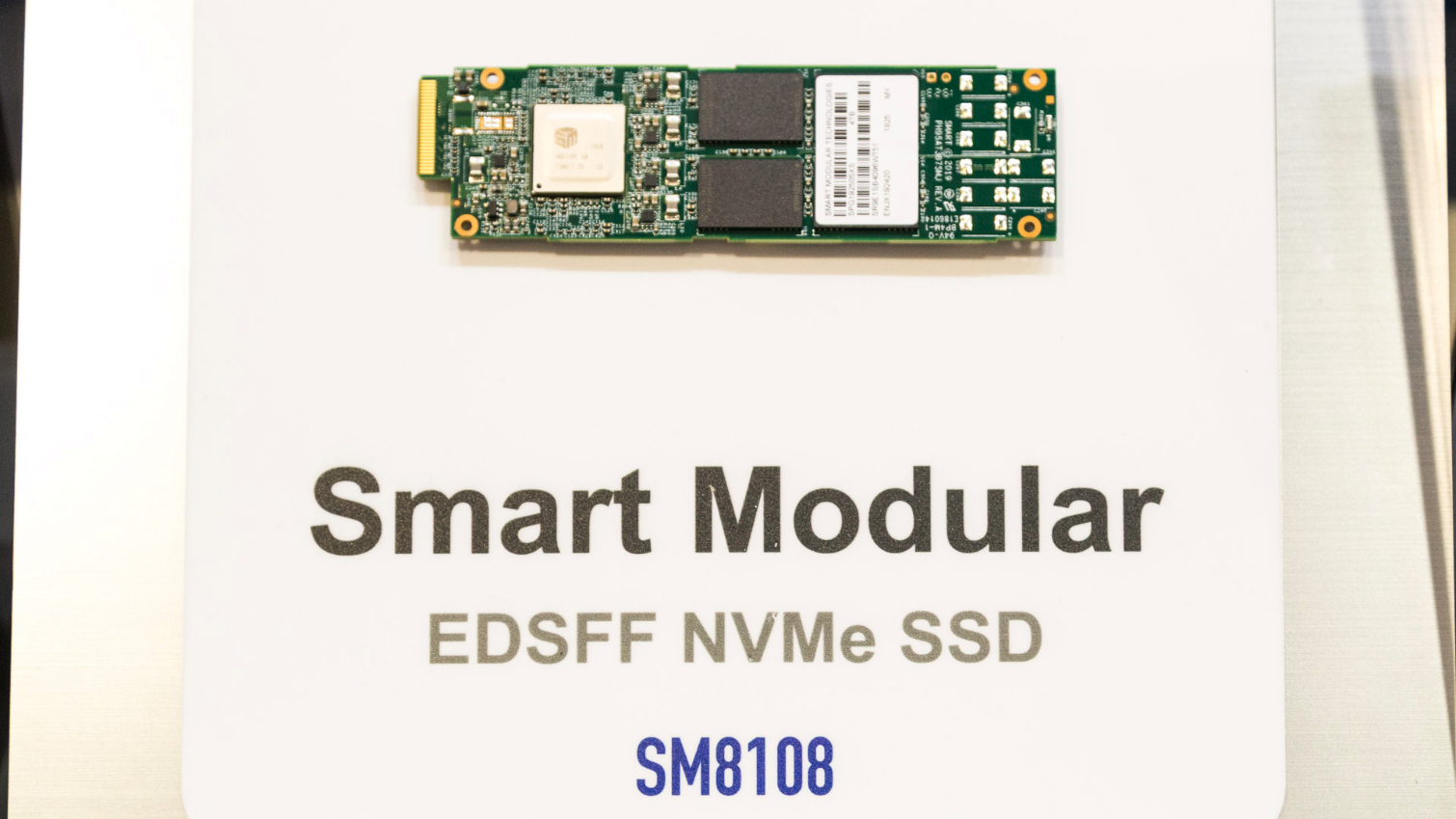
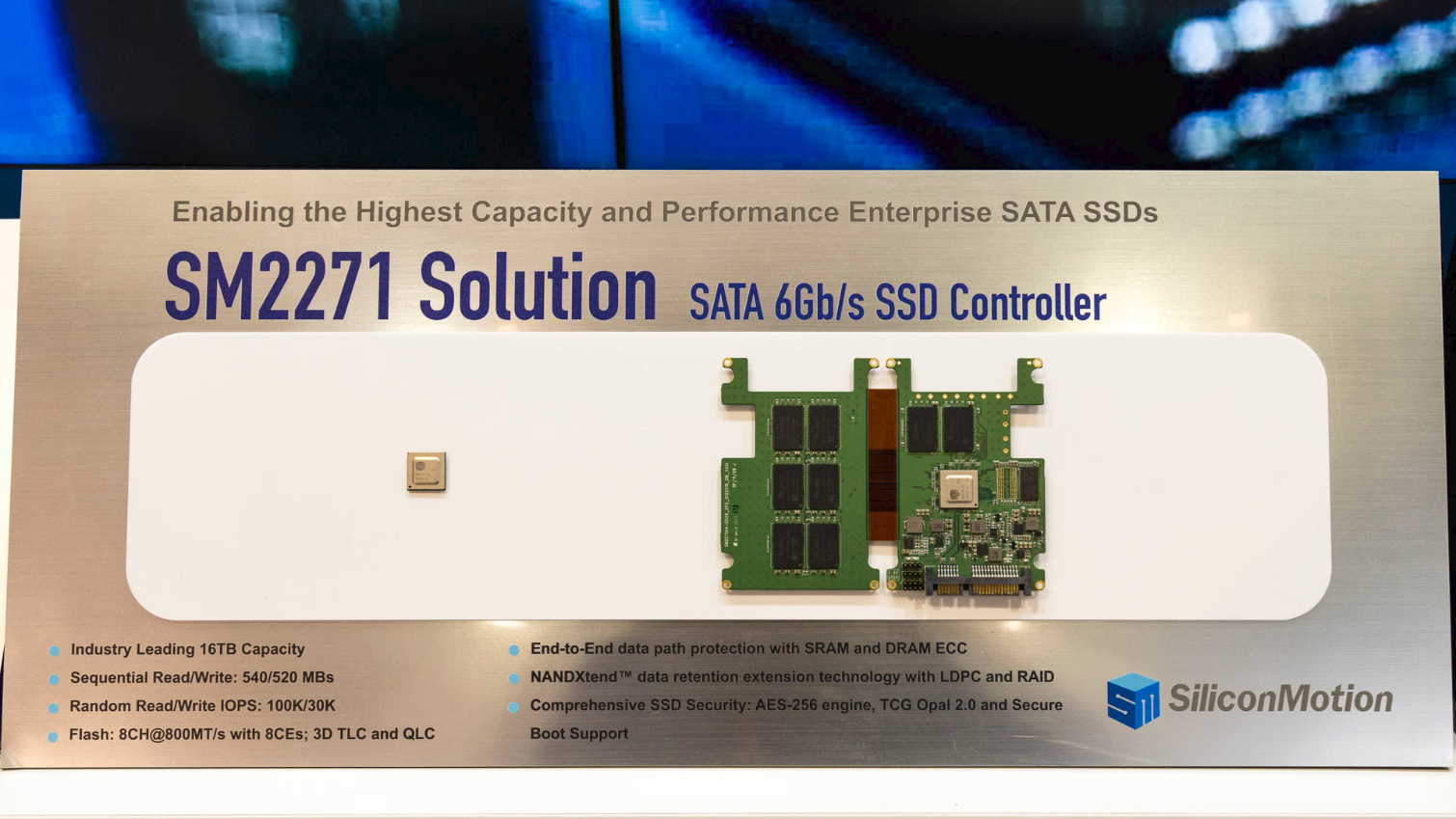
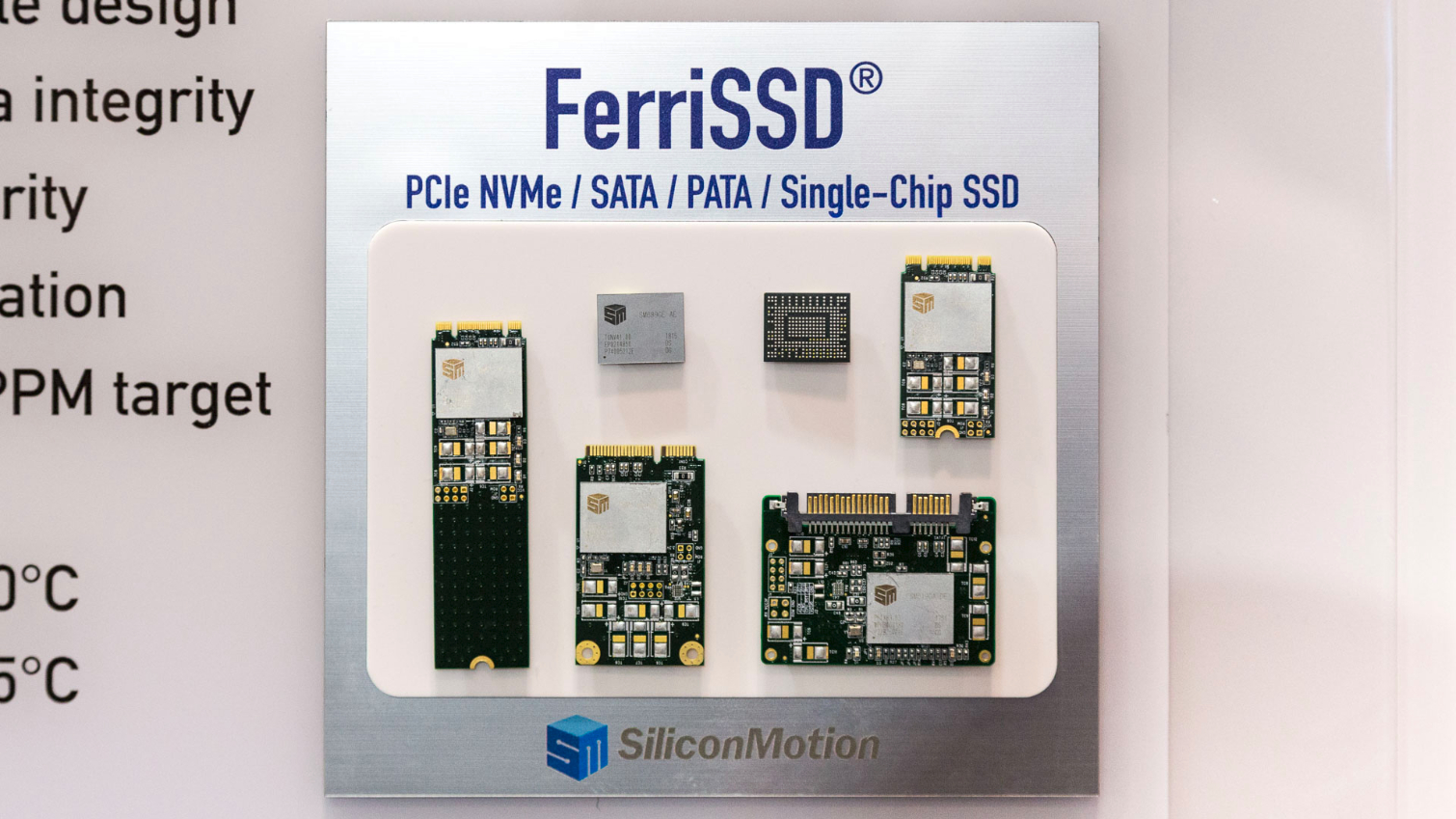
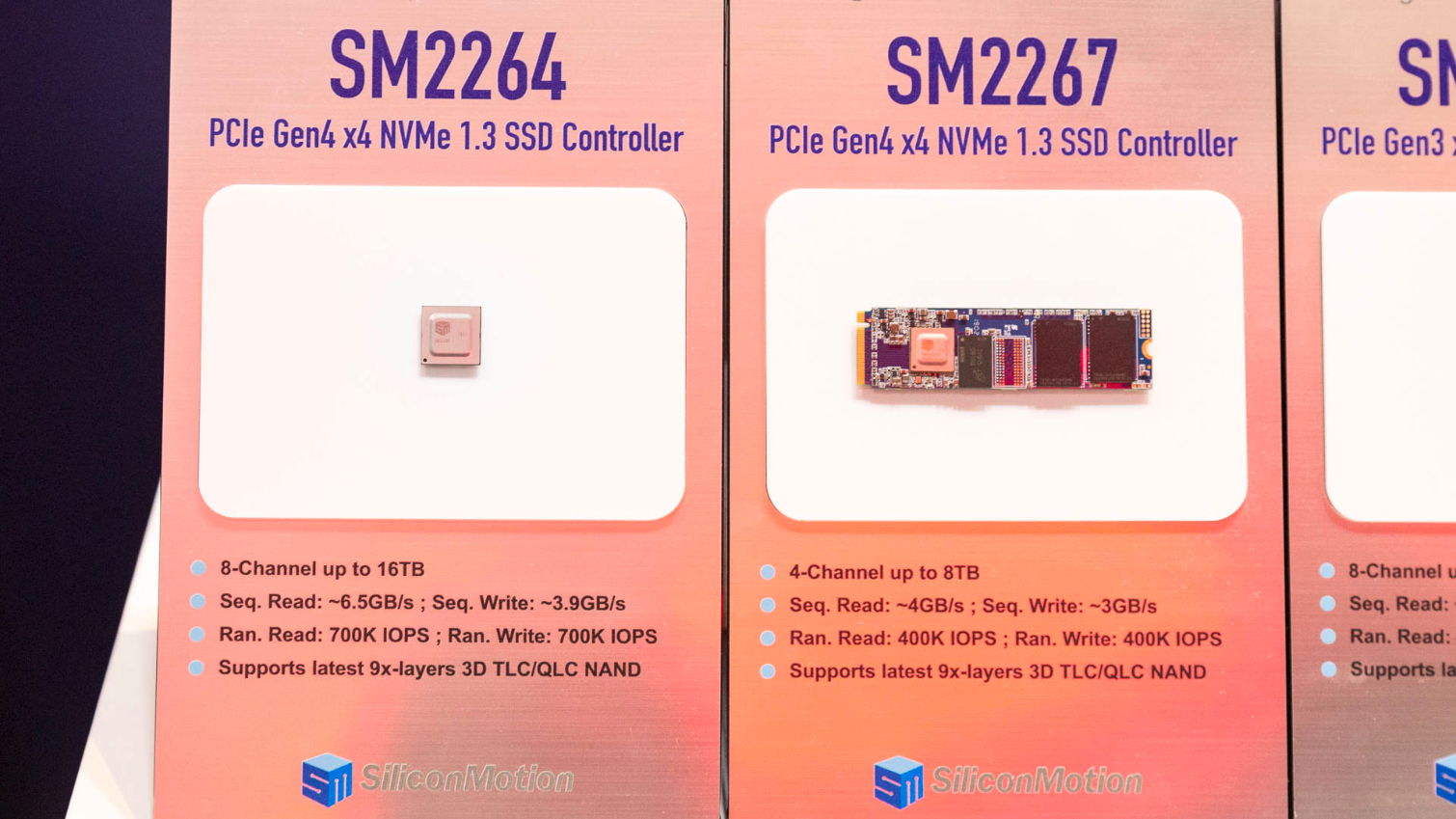
On the consumer side of things, SMI has two new PCIe 4.0 SSD controllers that will arrive next year: The SM2264 and SM2267. While the SM2267 may mislead you into believing it is faster than the SM2264, it is actually a bit slower due to a four-channel architecture that uses DRAM, unlike SMI-competitor Phison’s next-gen DRAMless E19T controller. However, the SMI controller uses DRAM, so it overshadows Phison's controller with speeds of up to 4/3 GB/s read/write and random performance up to 400,000 read/write IOPS. It supports the latest 9x-layer NAND in both TLC and QLC flavors and is poised for release next year.
The SM2264, on the other hand, features an eight-channel design and is expected to reach speeds of up to 6.5GB/s read and 3.9GB/s write and 700,000 IOPS. So, a bit less than Phison’s recently announced E18 controller, and it doesn’t seem like SMI's controller will be NVMe 1.4 compliant quite yet. Like the SM2267, it supports the latest NAND technologies nd we should see it sometime early next year with support for capacities of up to 16TB, which is twice the capacity of the SM2267.
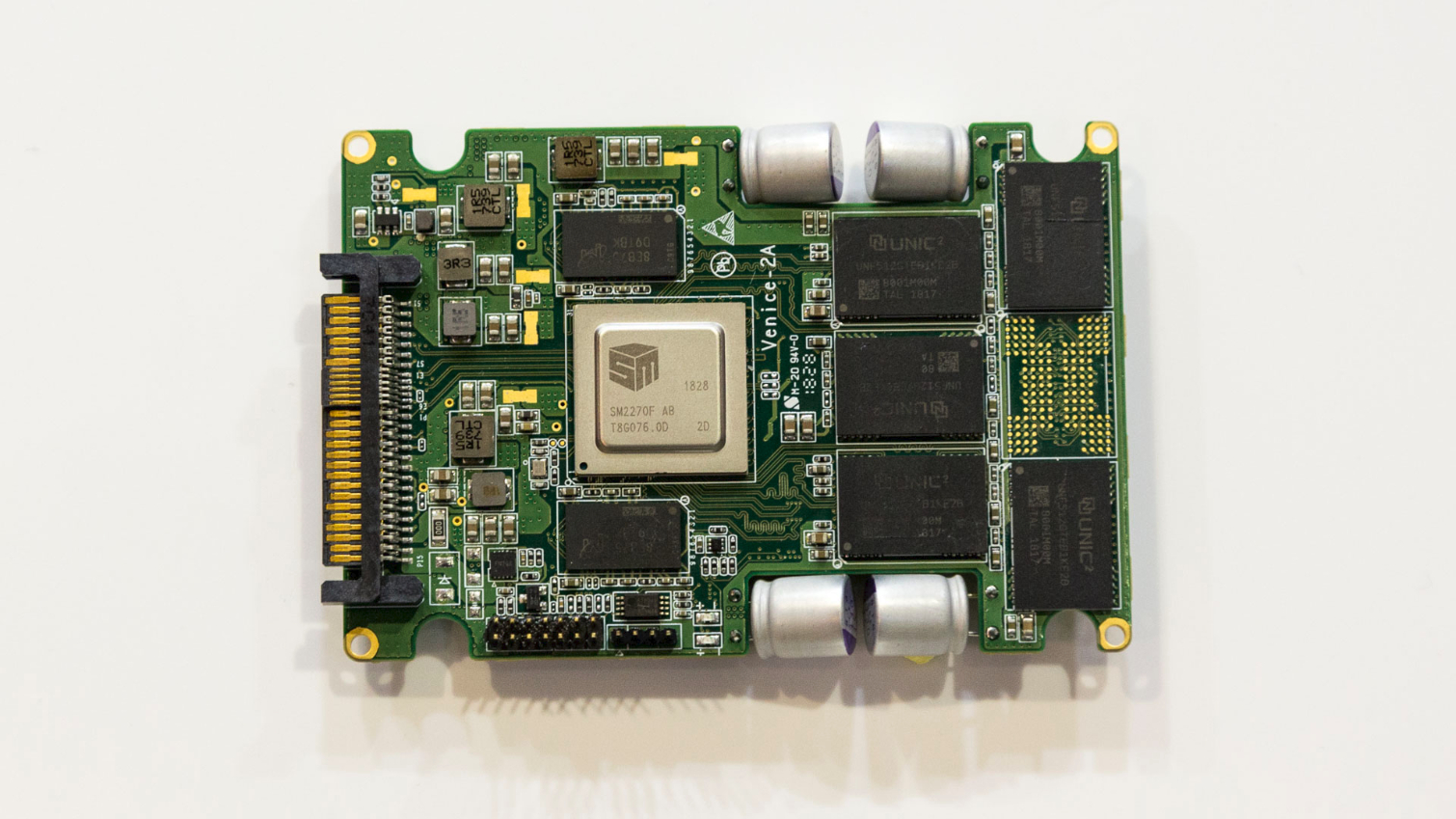
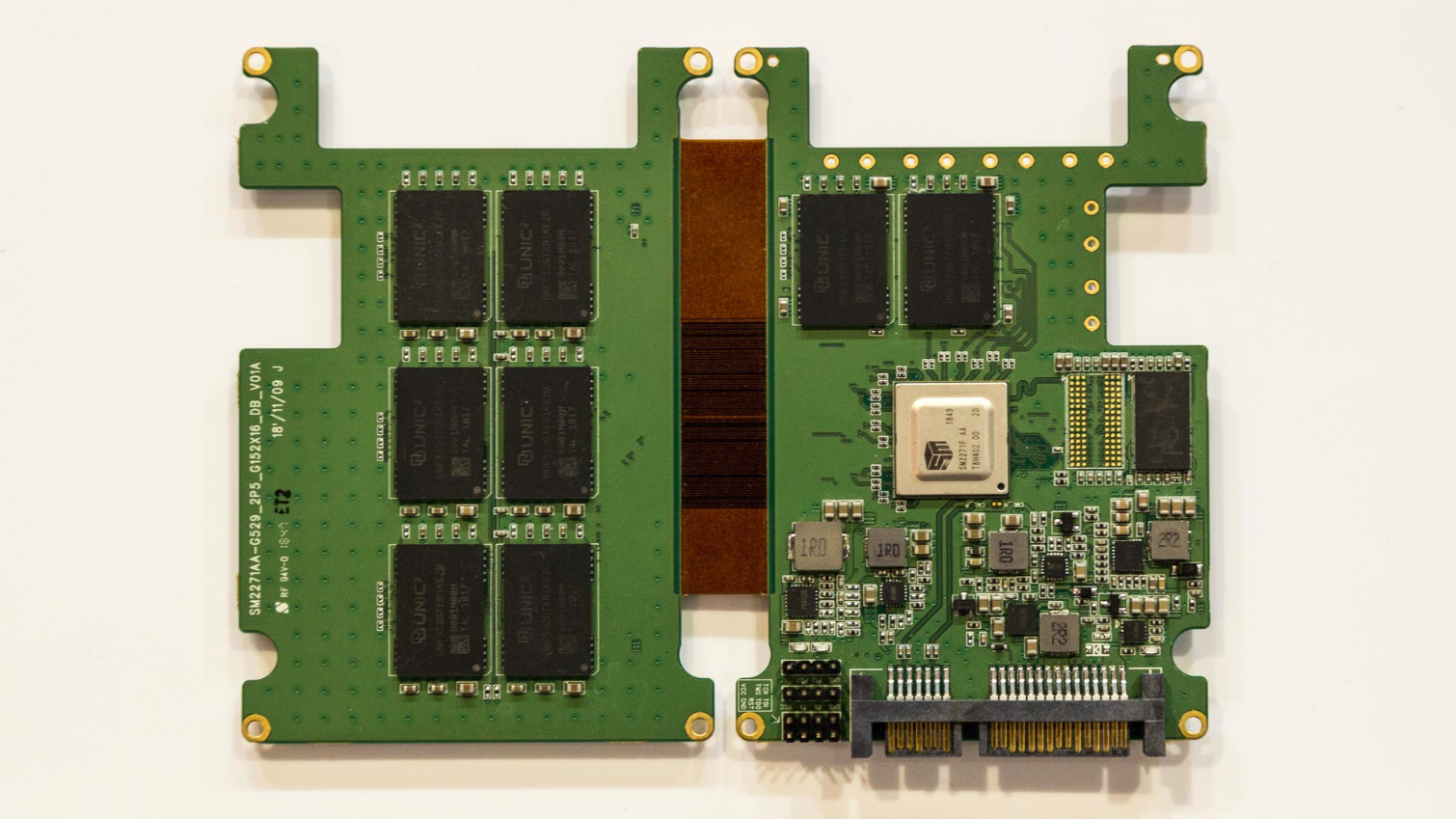
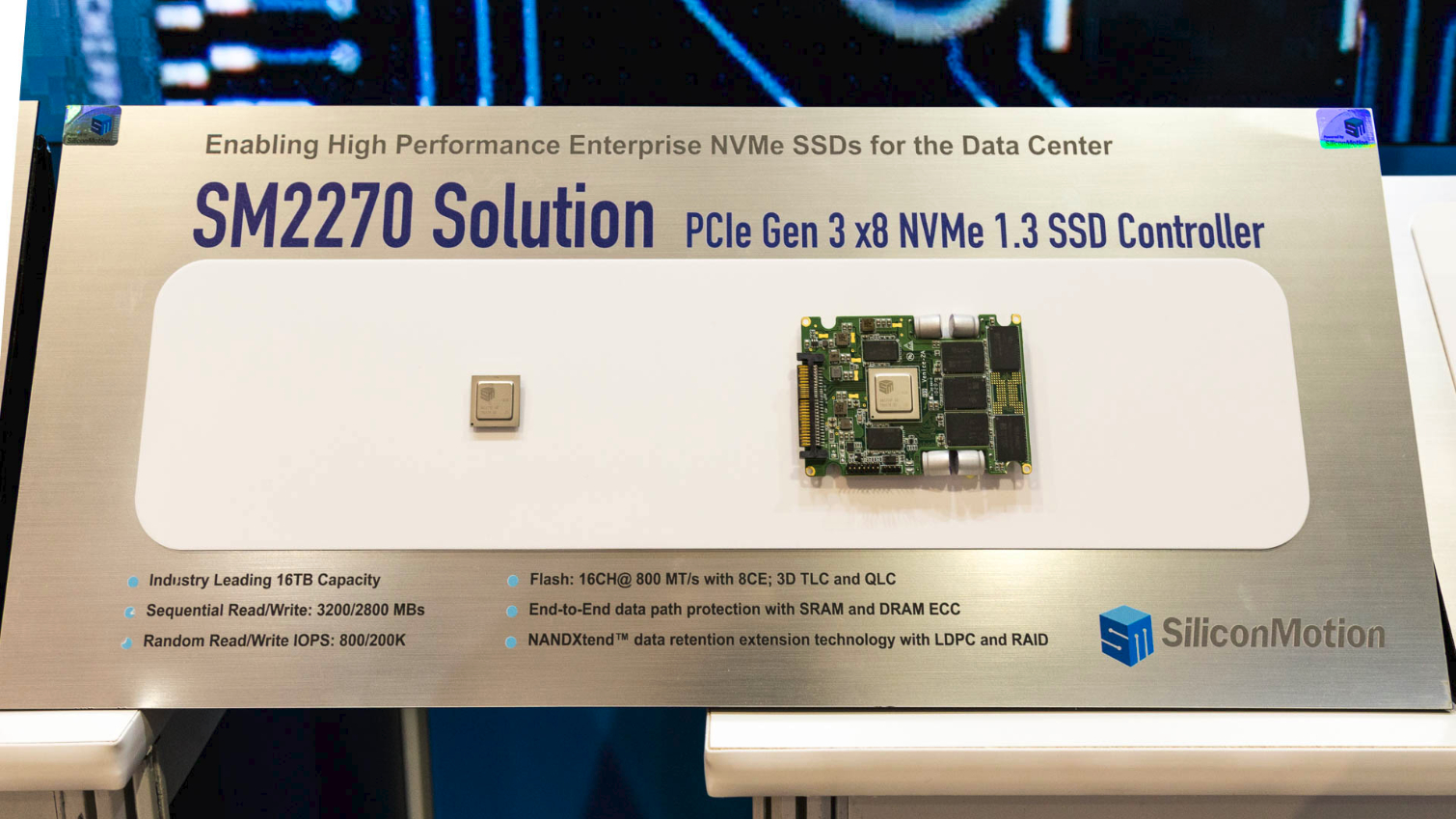
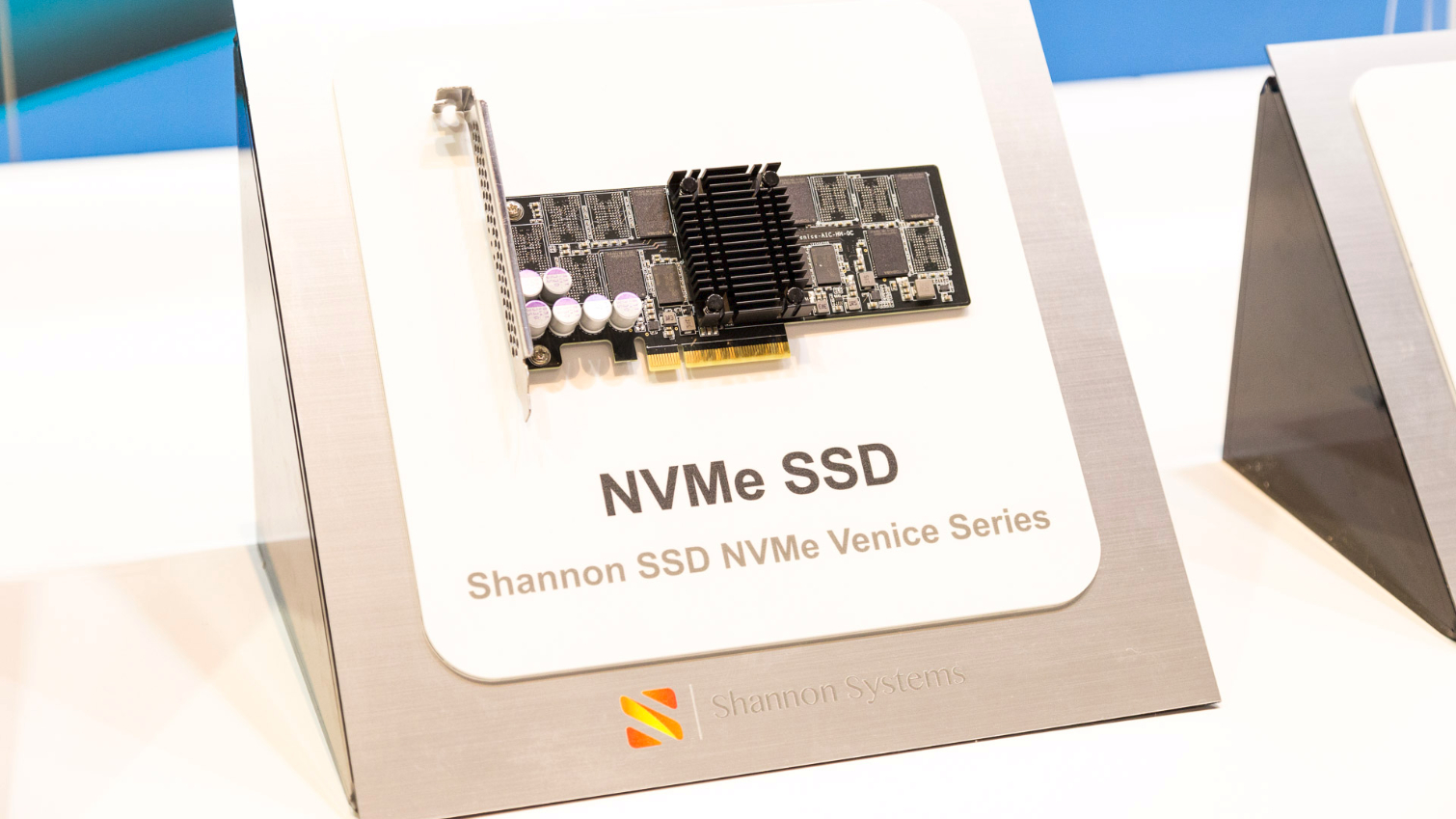
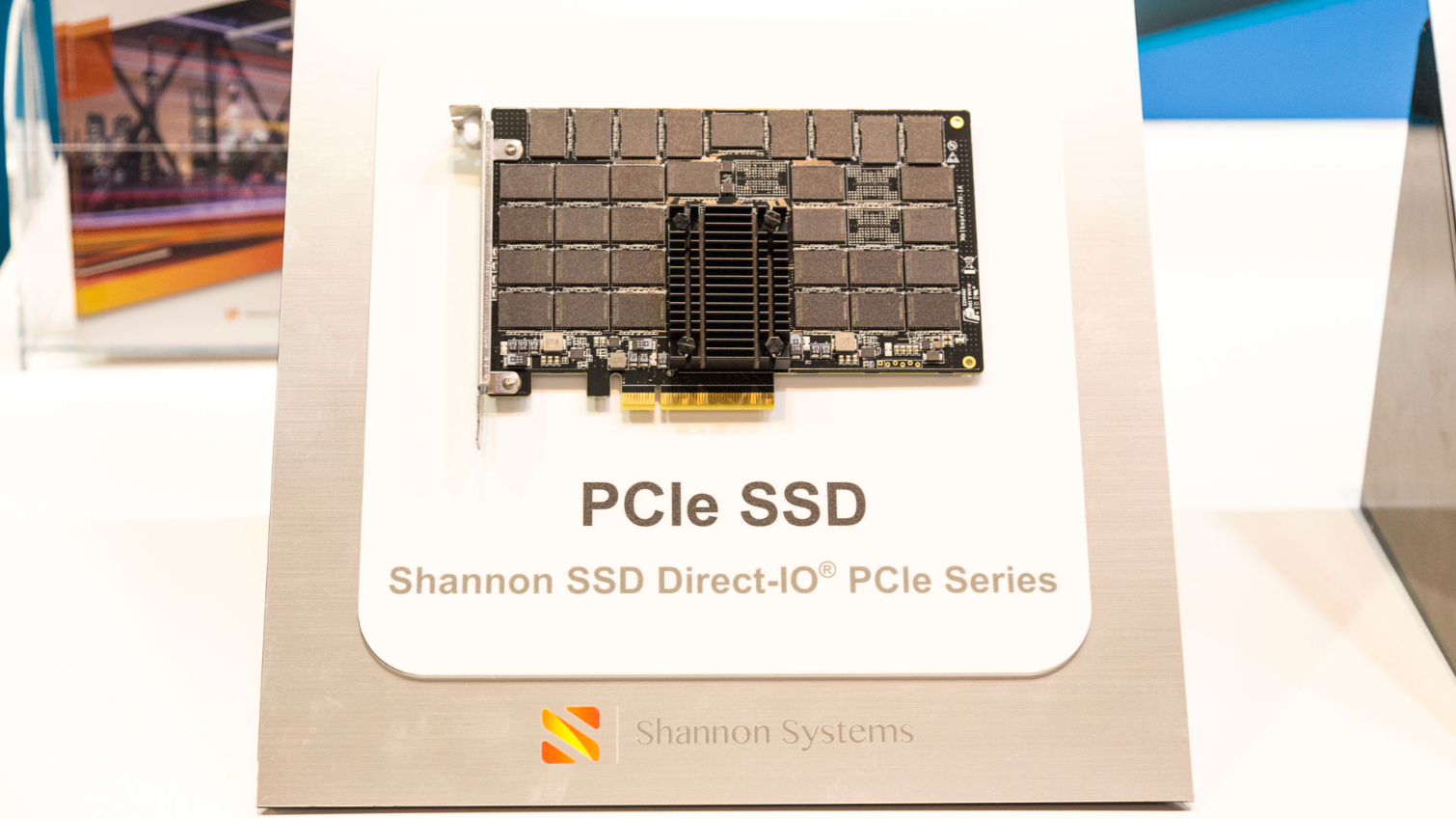
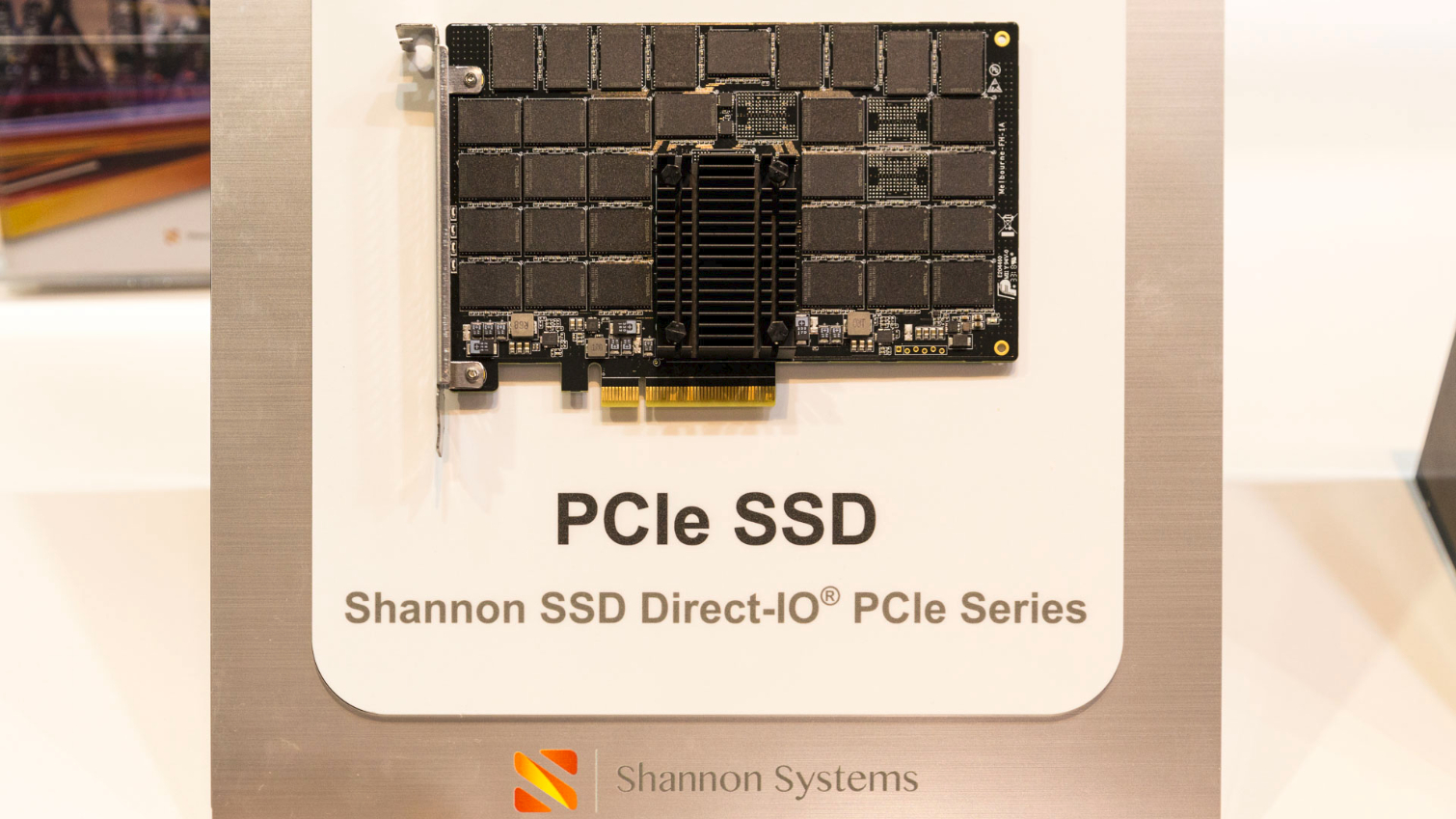
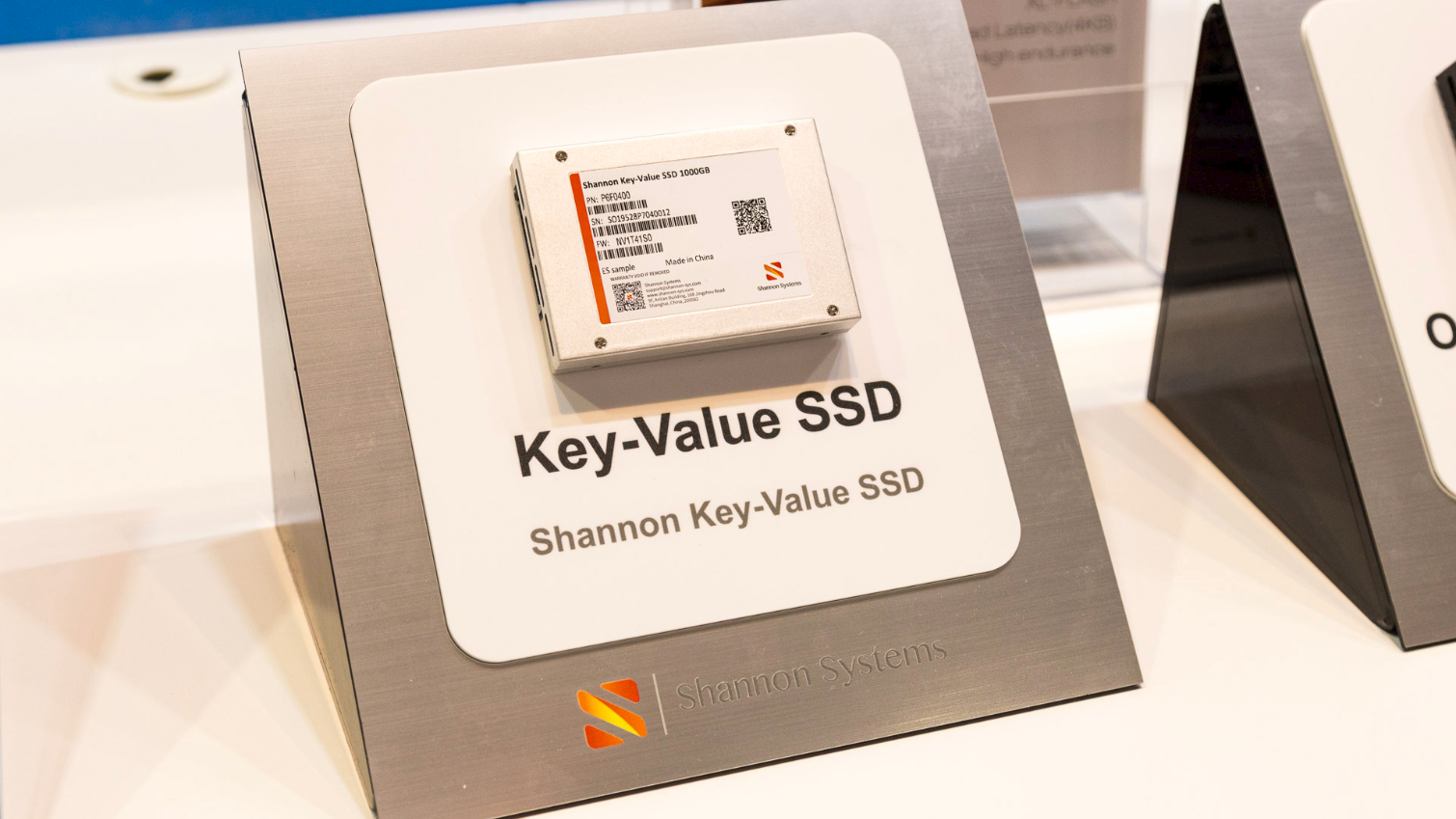
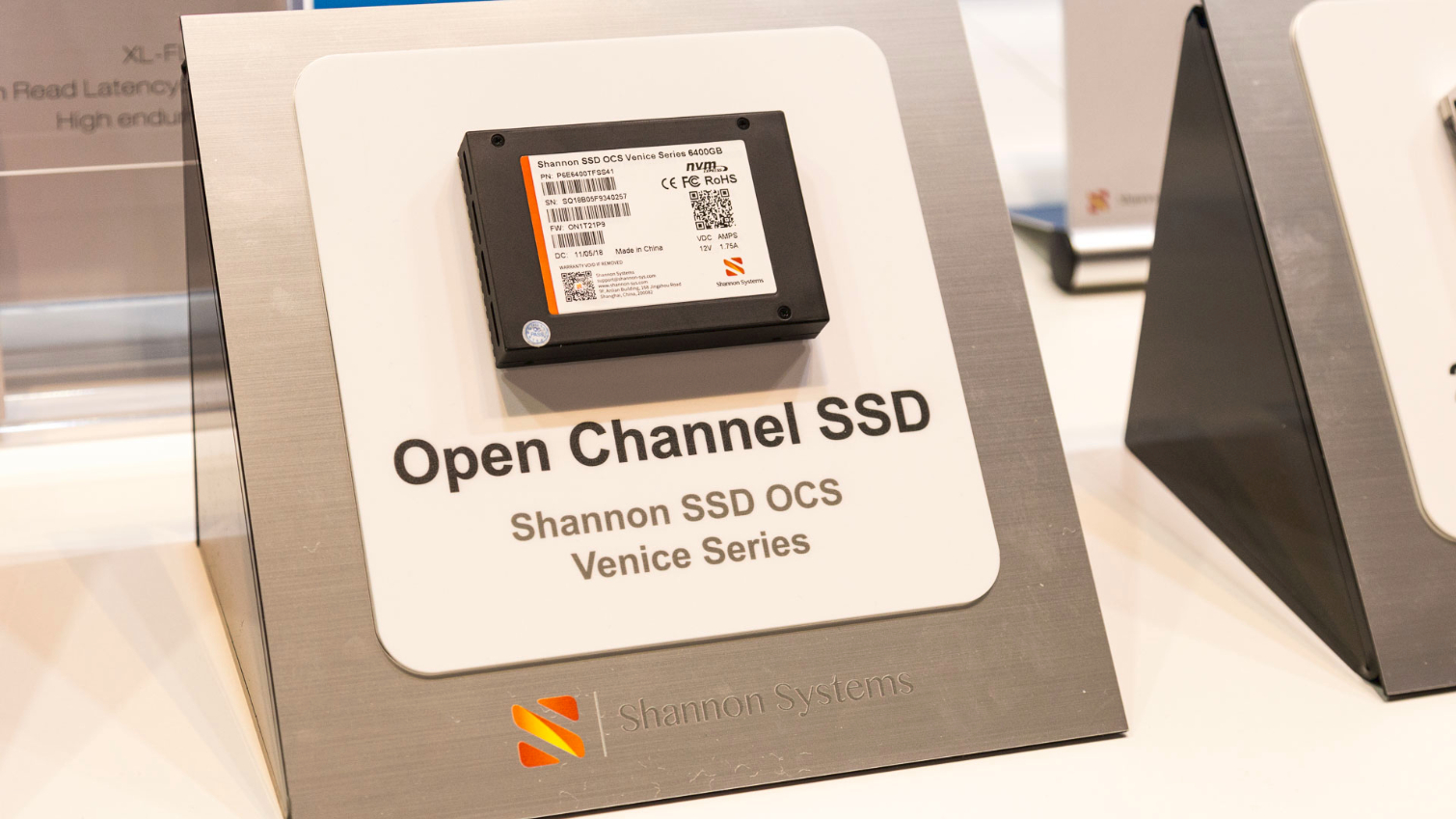
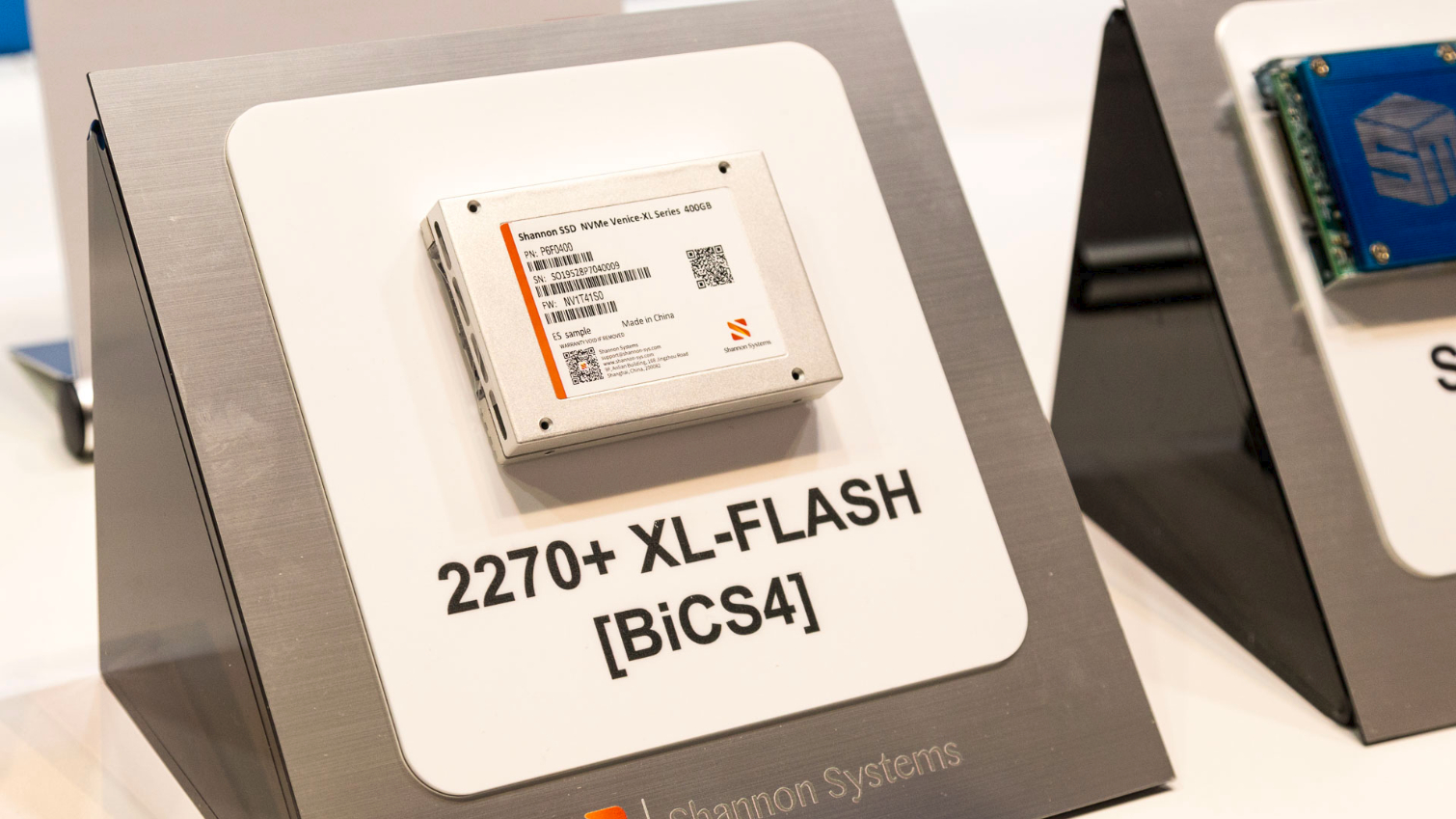
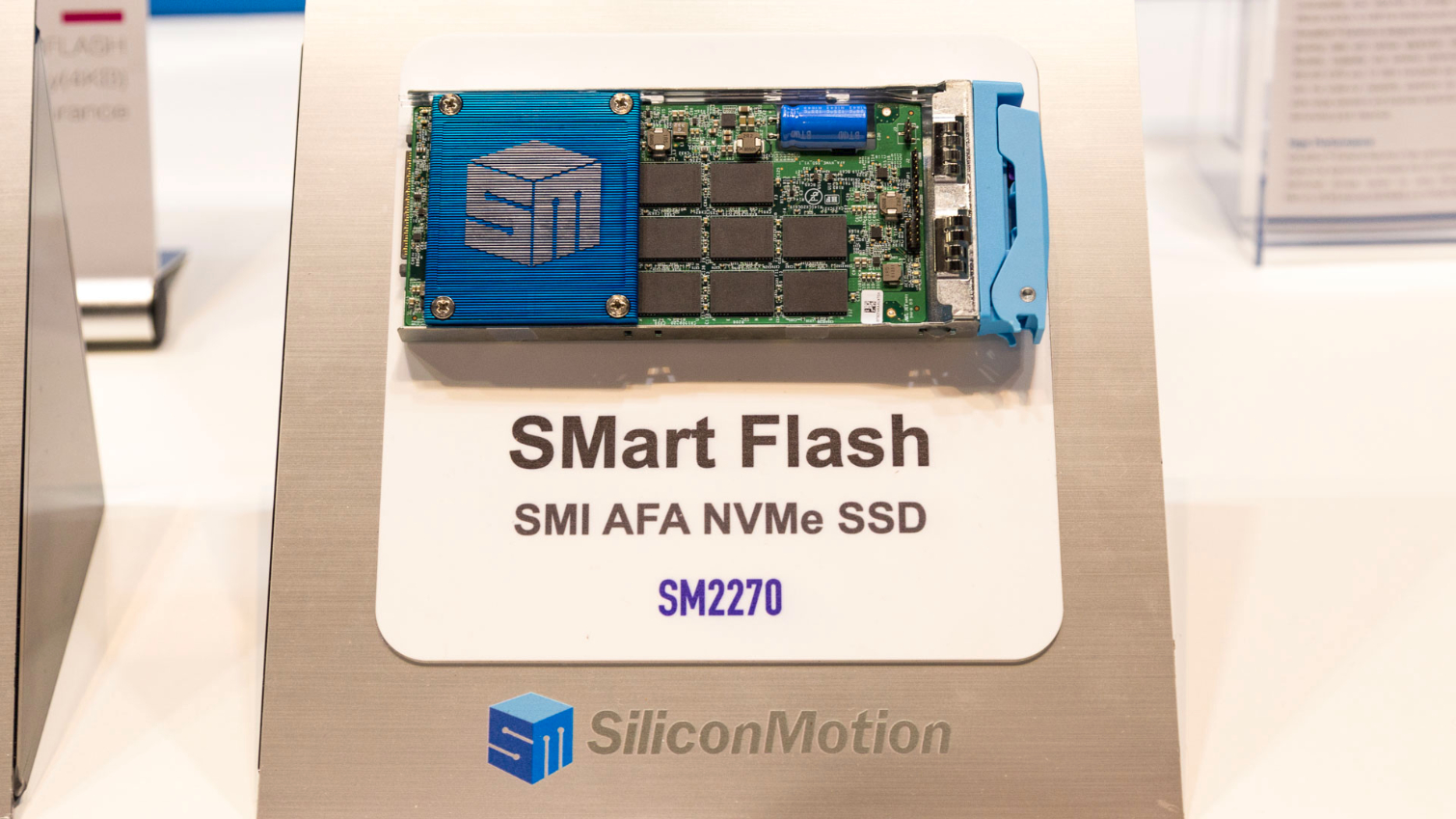
On the enterprise/data center side of things, SMI showed off its lineup of Shannon Systems SSDs, which includes an array of application-specific devices, like Key-Value and Open-Channel SSDs. SMI also had some newer controllers and full reference designs on display, like the SM8108, SM2270, and SM2271 controllers. Most of which Silicon Motion has already announced and come with turnkey firmware and full SSD reference designs. Interestingly, SMI supports Toshiba’s latest XL-Flash, which is quite similar to Samsung’s Z-NAND (speed-optimized SLC). These new types of flash are gaining traction, so we should see more of them in the future.
Get Tom's Hardware's best news and in-depth reviews, straight to your inbox.

Sean is a Contributing Editor at Tom’s Hardware US, covering storage hardware.
